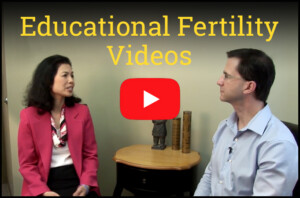
Breast cancer is all too common among women (and some men) today. At Eastern Healing we provide breast cancer support to patients in Joliet, Wheaton and throughout the Chicago area in an effort to promote healing and wellness in the body while reducing the negative symptoms and side effects many patients experience when undergoing chemotherapy or other treatment for cancer. Holistic or “natural” medicine is extremely beneficial when used in support of modern or conventional medicine.
Natural breast cancer treatment may involve modalities of traditional Chinese medicine including acupuncture, herbal and plant-based medicine, dietary therapy, massage and other tools that reduce stress, promote well-being, fight depression, help balance hormones and more. Many cancer patients who are treated with chemotherapy and/or radiation experience nausea, loss of appetite, pain, hot flashes, insomnia and other negative side effects that impact quality of life.
When it comes to patient safety and expertise, licensed acupuncturists receive far more training and education than dry needlers. Acupuncturists complete thousands of hours of study in anatomy, physiology, pathology, and traditional Chinese medicine, in addition to supervised clinical internships before earning their license. By contrast, dry needling is often taught to physical therapists and chiropractors through short weekend seminars with only a few dozen hours of instruction. This significant difference in education directly impacts patient safety: acupuncturists are trained to understand meridians, organ systems, and how to safely insert needles to avoid nerve damage, punctured organs, or other complications. Choosing a licensed acupuncturist ensures that you are in the hands of a highly qualified professional who is dedicated to both effectiveness and your overall well-being.
At Eastern Healing, with locations in Wheaton and Joliet, Illinois, patients often ask a common question: What is the difference between acupuncture and dry needling? Both involve the use of thin, sterile needles inserted into the body, but their origins, philosophies, and applications differ significantly. Understanding these distinctions can help patients make informed decisions about their care.
The Foundations of Acupuncture
Acupuncture is a central component of Traditional Chinese Medicine (TCM), a holistic system that has been practiced for thousands of years. The goal of acupuncture is to restore balance in the body by regulating the flow of qi (pronounced “chee”), or vital energy, which moves along pathways called meridians. When qi is blocked or unbalanced, illness or pain may result. By inserting needles into specific acupuncture points along these meridians, practitioners stimulate the body’s natural healing response.
At Eastern Healing, owner and top practicing acupuncturist Peter Harvey draws on years of training and clinical experience to provide individualized treatments. He carefully selects acupuncture points based on a patient’s overall health picture, not just their symptoms. For example, a patient seeking help for back pain may also receive treatment to improve sleep, digestion, or stress levels, since these systems are interconnected.
What is Dry Needling?
Dry needling, by contrast, is a much newer practice. It is commonly performed by physical therapists, chiropractors, and some medical doctors. The technique focuses on relieving musculoskeletal pain by targeting trigger points—tight knots or bands of muscle that can restrict movement and cause discomfort.
In dry needling, a practitioner inserts a thin needle directly into these trigger points to release tension and improve blood flow. Patients may feel a twitch response in the muscle, followed by a release of tightness. Unlike acupuncture, dry needling is not based on meridians, qi, or a holistic medical framework. It is a modern, Western technique designed specifically for muscle pain and dysfunction.
Key Differences Between Acupuncture and Dry Needling
While acupuncture and dry needling may look similar at first glance, their goals and approaches are quite different:
1. Philosophy and Origin
- Acupuncture: Rooted in Traditional Chinese Medicine, focused on whole-body balance, energy flow, and long-term wellness.
- Dry Needling: Rooted in Western medicine, focused primarily on muscular pain and dysfunction.
2. Scope of Practice
- Acupuncture: Addresses not only pain but also stress, anxiety, fertility, digestion, sleep, and overall well-being.
- Dry Needling: Primarily targets trigger points to relieve pain and improve range of motion.
3. Treatment Approach
- Acupuncture: Point selection is customized based on a patient’s complete health assessment.
- Dry Needling: Points are chosen based on physical examination of muscles.
4. Training and Expertise
- Licensed acupuncturists like Peter Harvey undergo thousands of hours of specialized training in acupuncture theory, safety, and clinical application.
- Dry needling training for physical therapists or chiropractors may range from a weekend course to a few months of instruction, depending on state regulations.
Which Option is Right for You?
The choice between acupuncture and dry needling depends on your health goals. If you are looking for a comprehensive approach that addresses not only pain but also the underlying imbalances contributing to your condition, acupuncture may be the best option. Patients at Eastern Healing often find that acupuncture not only relieves their immediate discomfort but also improves their energy, sleep, mood, and overall quality of life.
On the other hand, if you are seeking short-term relief for a specific muscle-related issue, dry needling may be an option offered by your physical therapist or chiropractor.
Why Choose Eastern Healing?
At Eastern Healing, Peter Harvey and his team take pride in offering safe, effective, and compassionate care. With extensive training in acupuncture and Traditional Chinese Medicine, Peter tailors each treatment plan to the individual. His philosophy is rooted in helping patients not just manage symptoms, but achieve lasting wellness.
Whether you are struggling with chronic pain, stress, women’s health issues, or simply want to improve your overall vitality, acupuncture at Eastern Healing can be a powerful, natural solution.
Eastern Healing – Wheaton & Joliet, Illinois Experience the difference of true acupuncture with trusted care from Peter Harvey.


